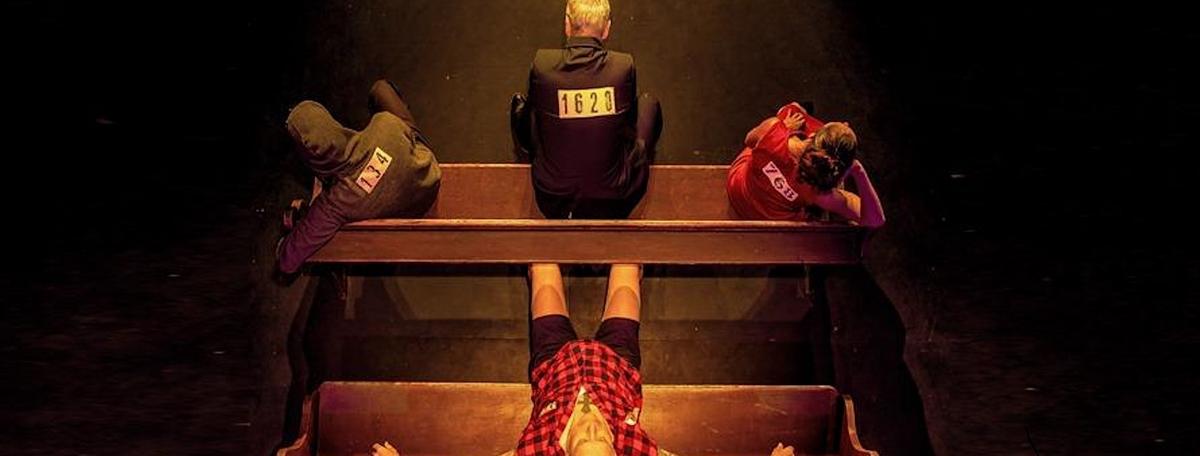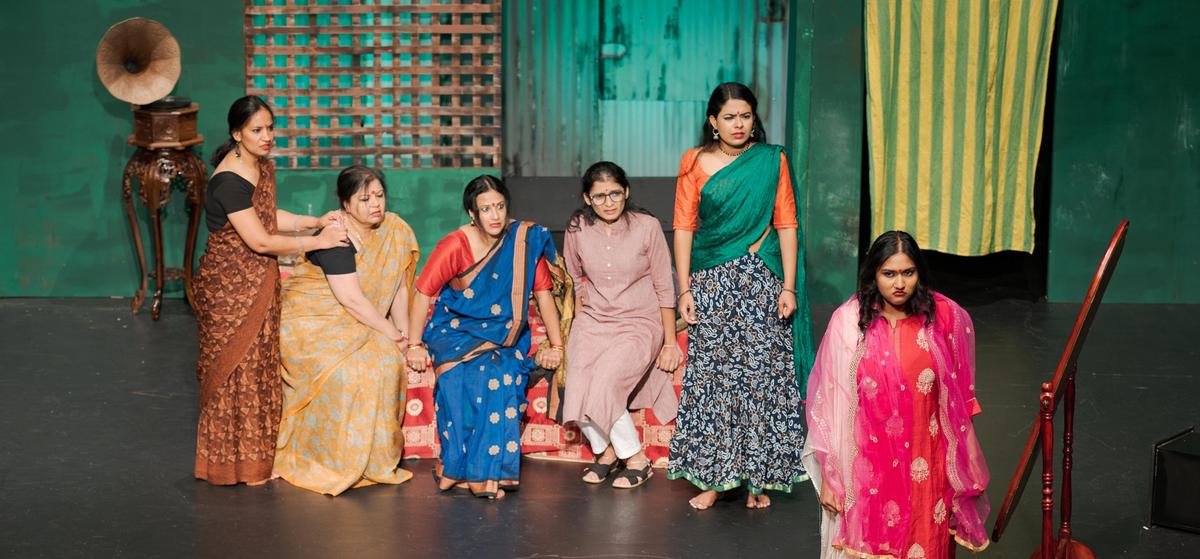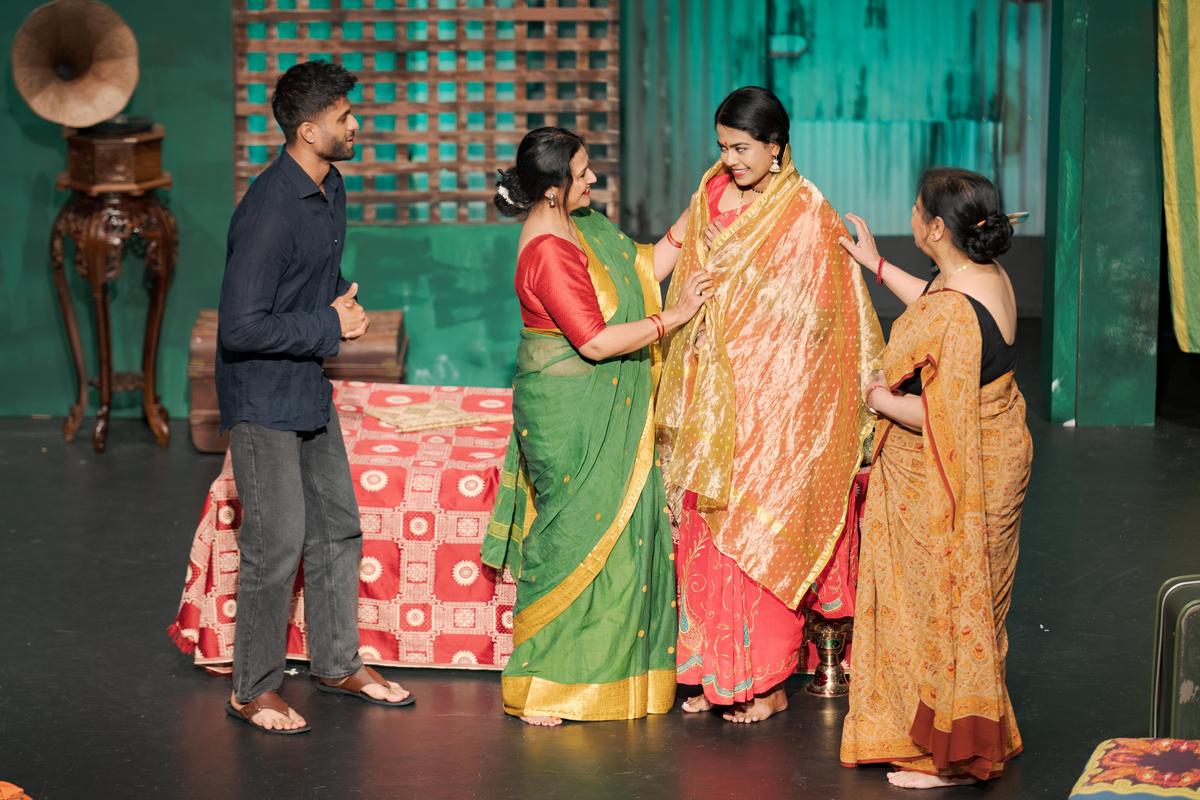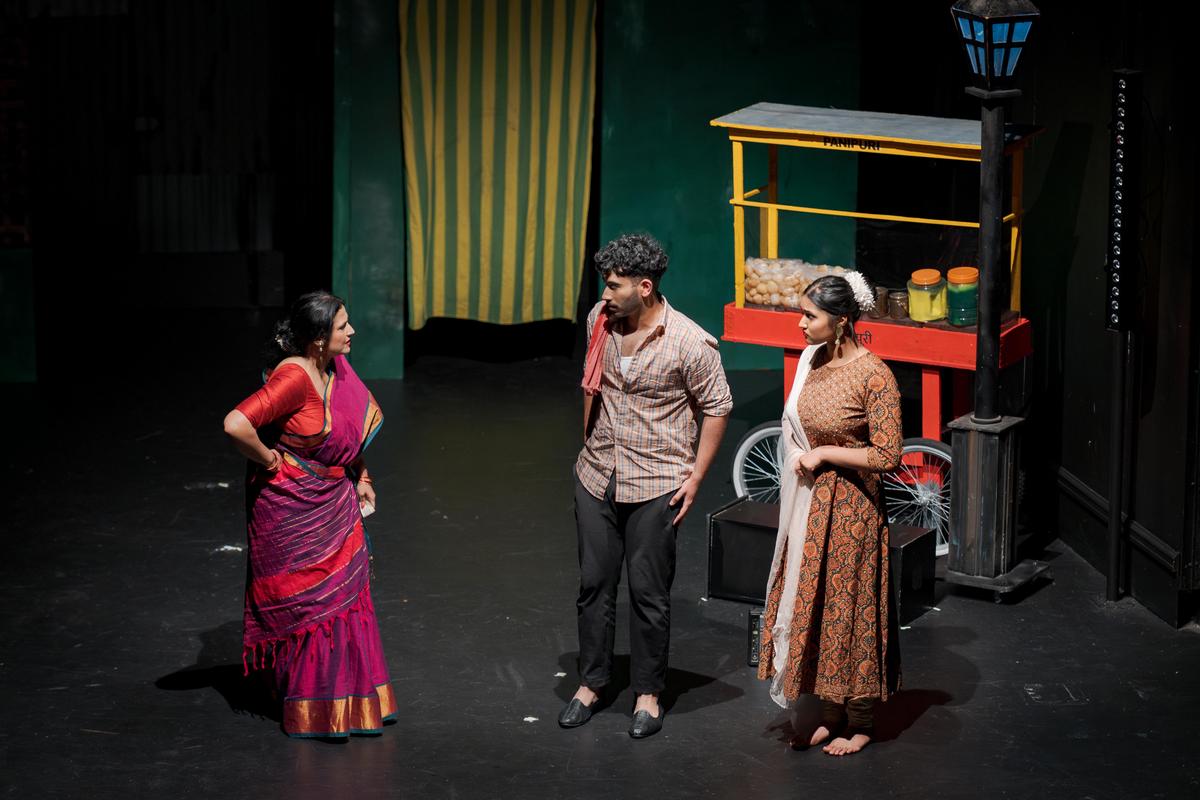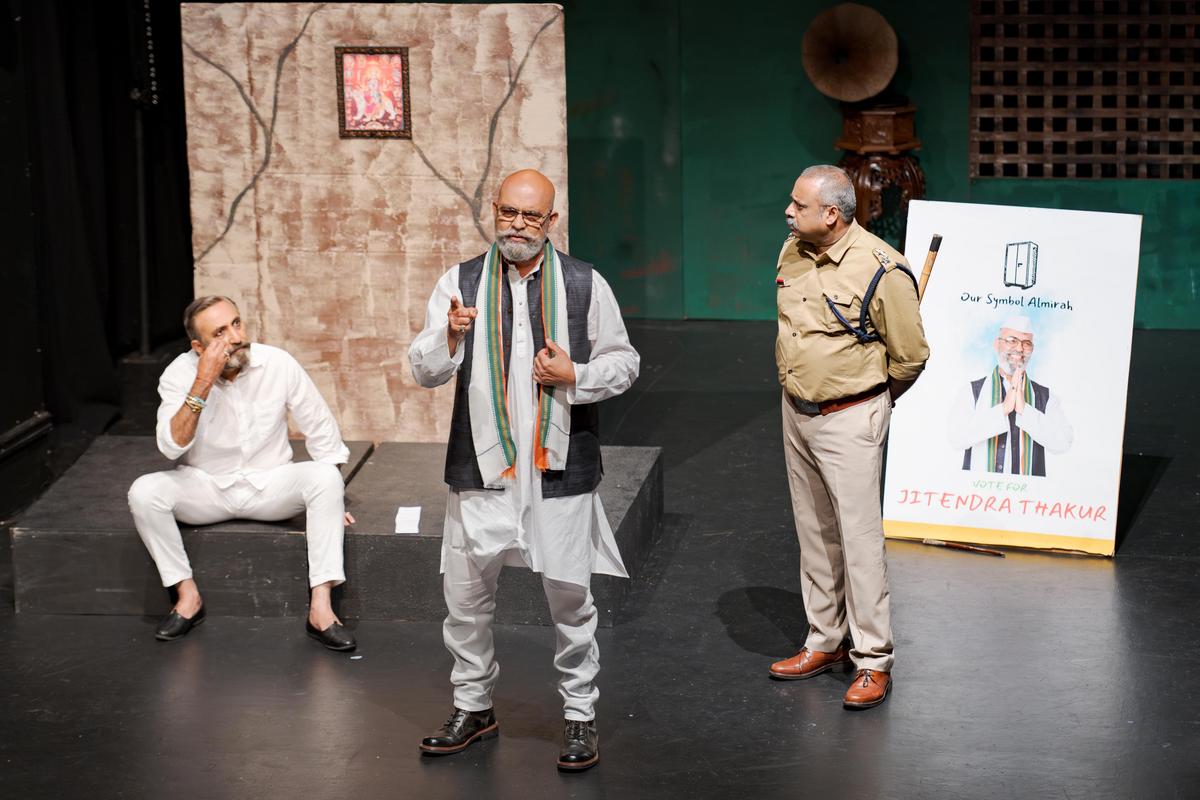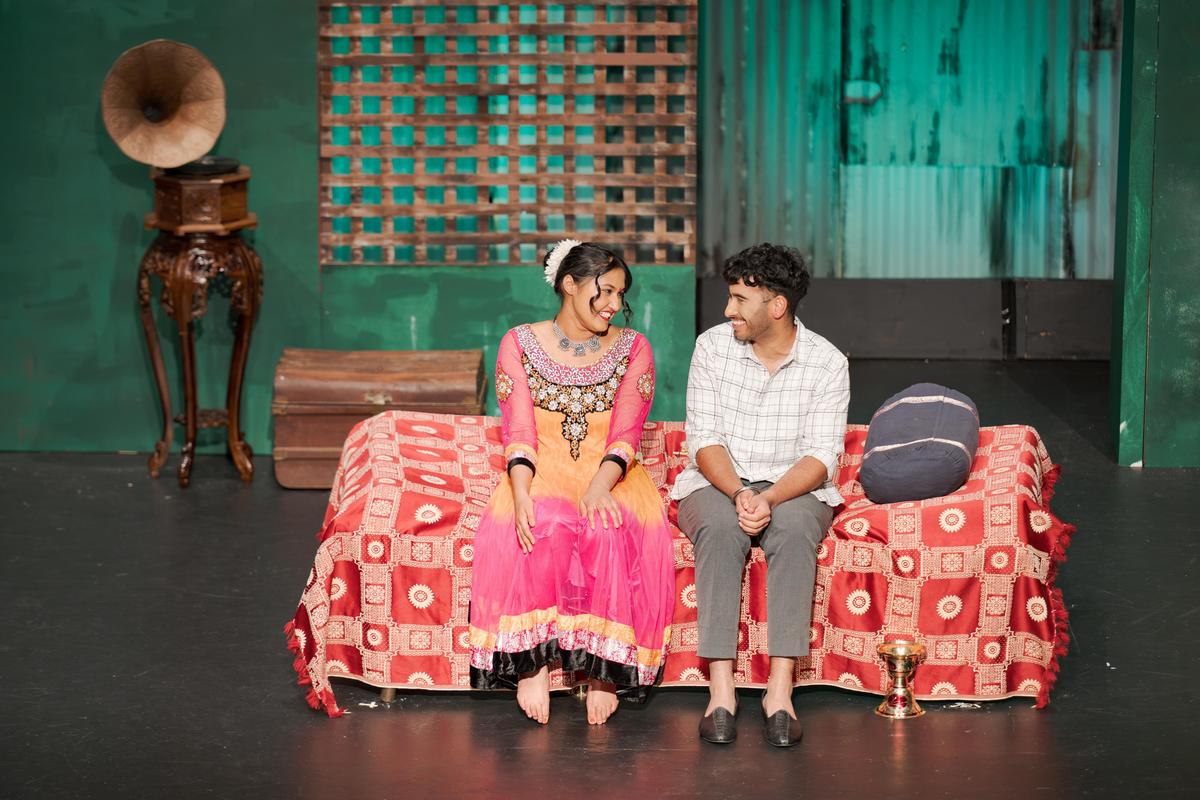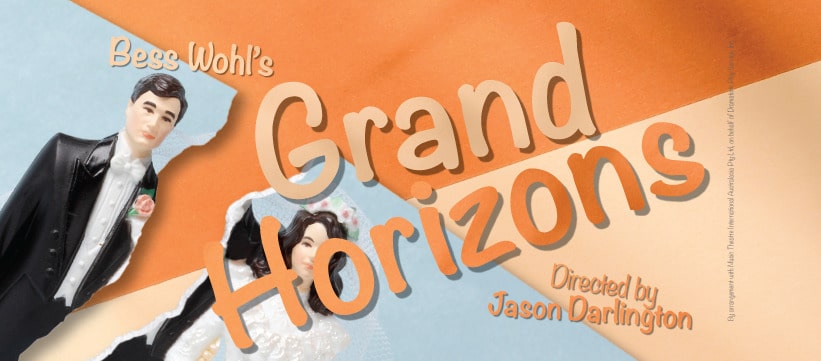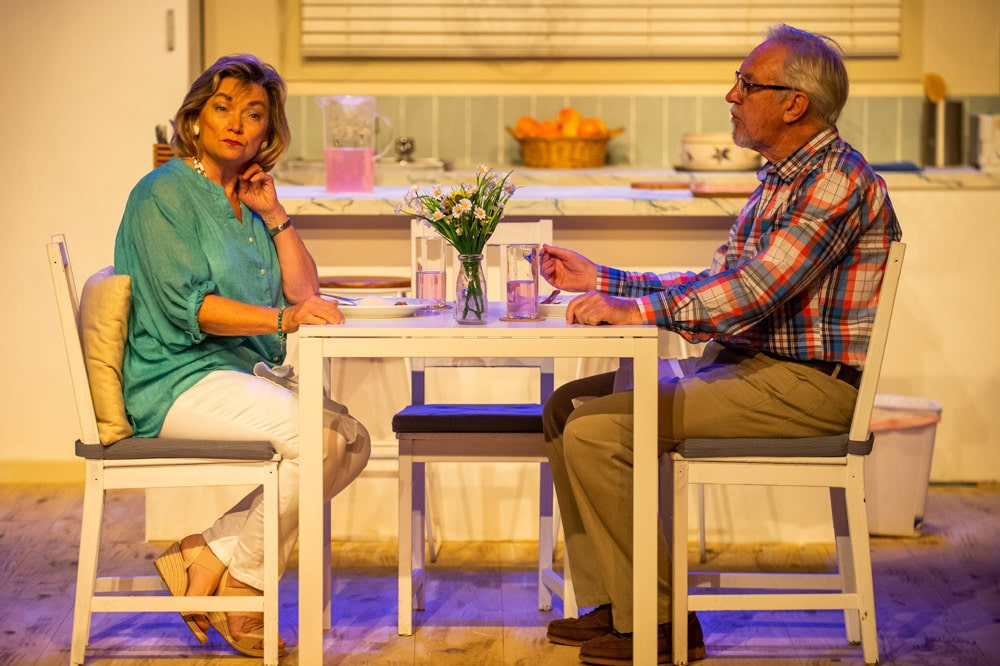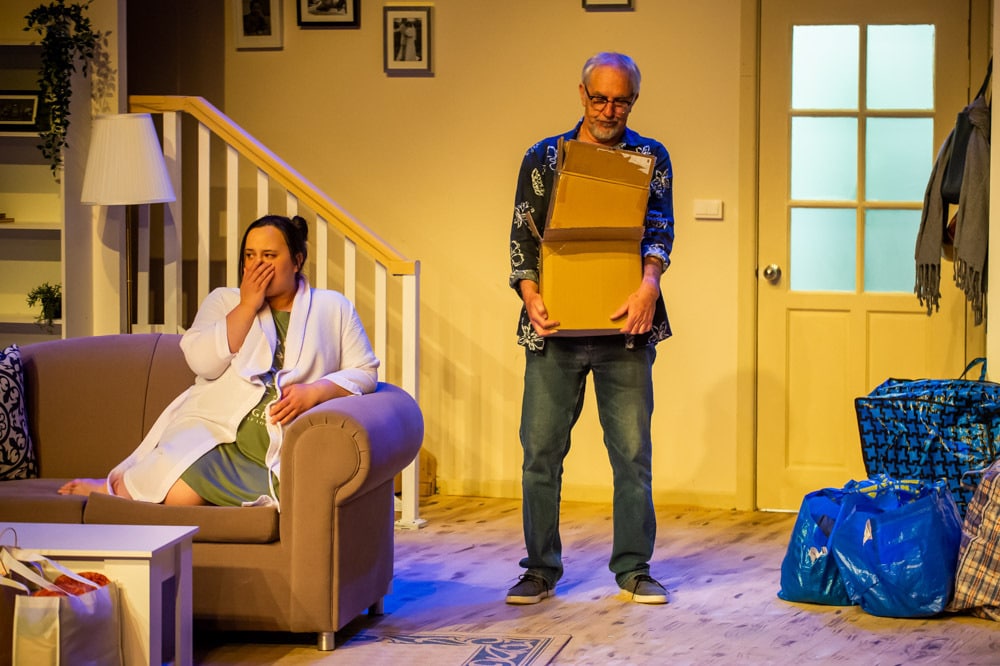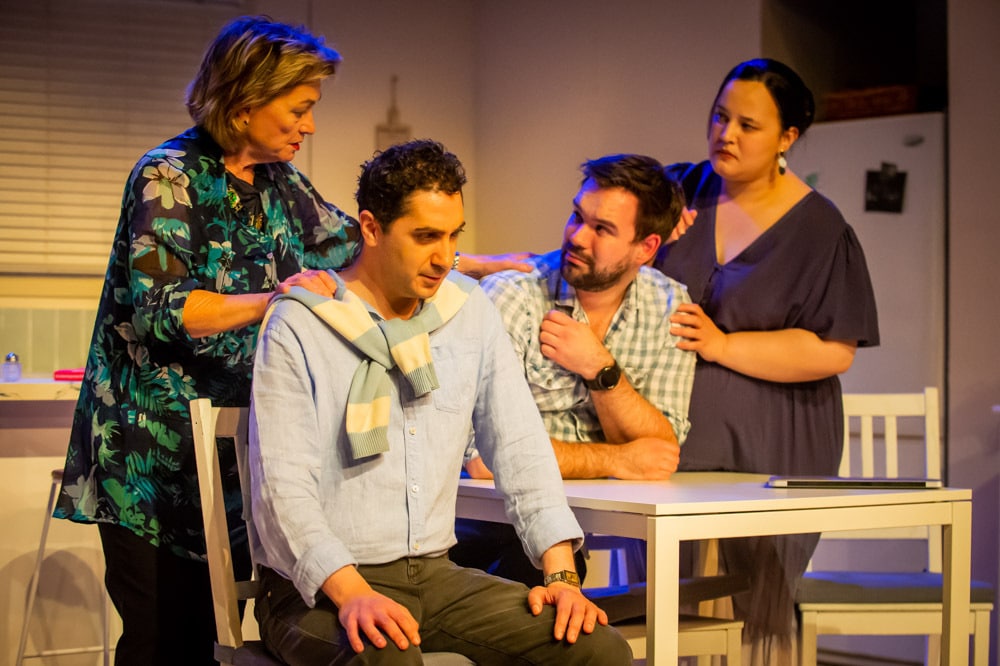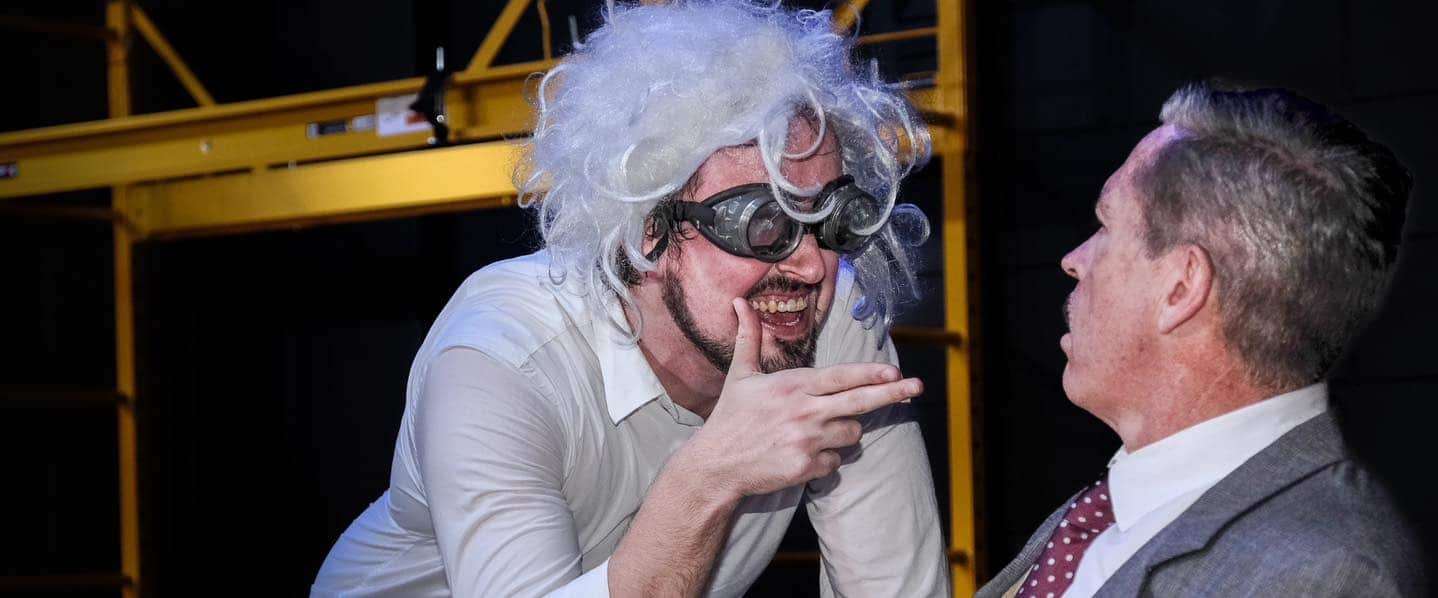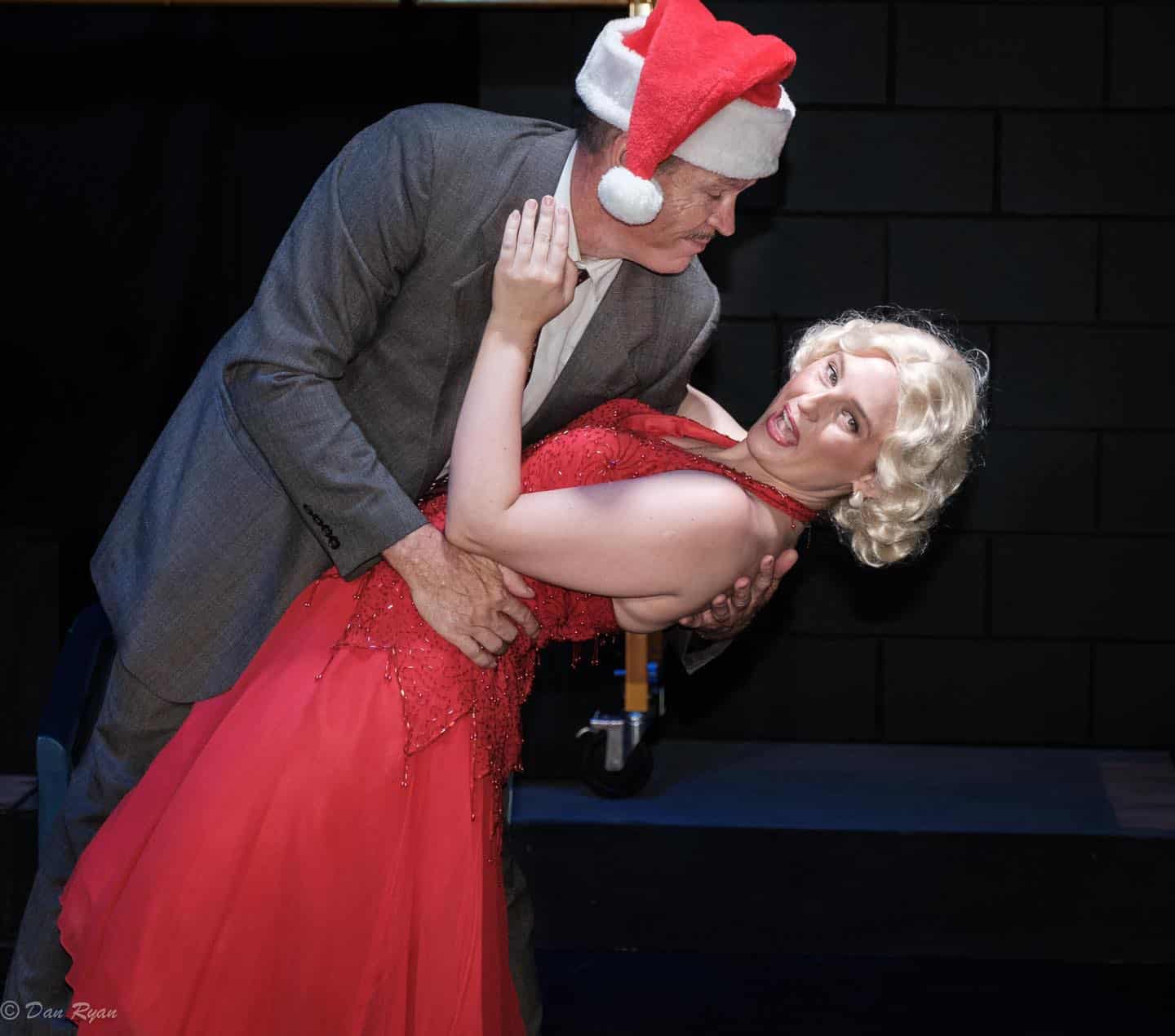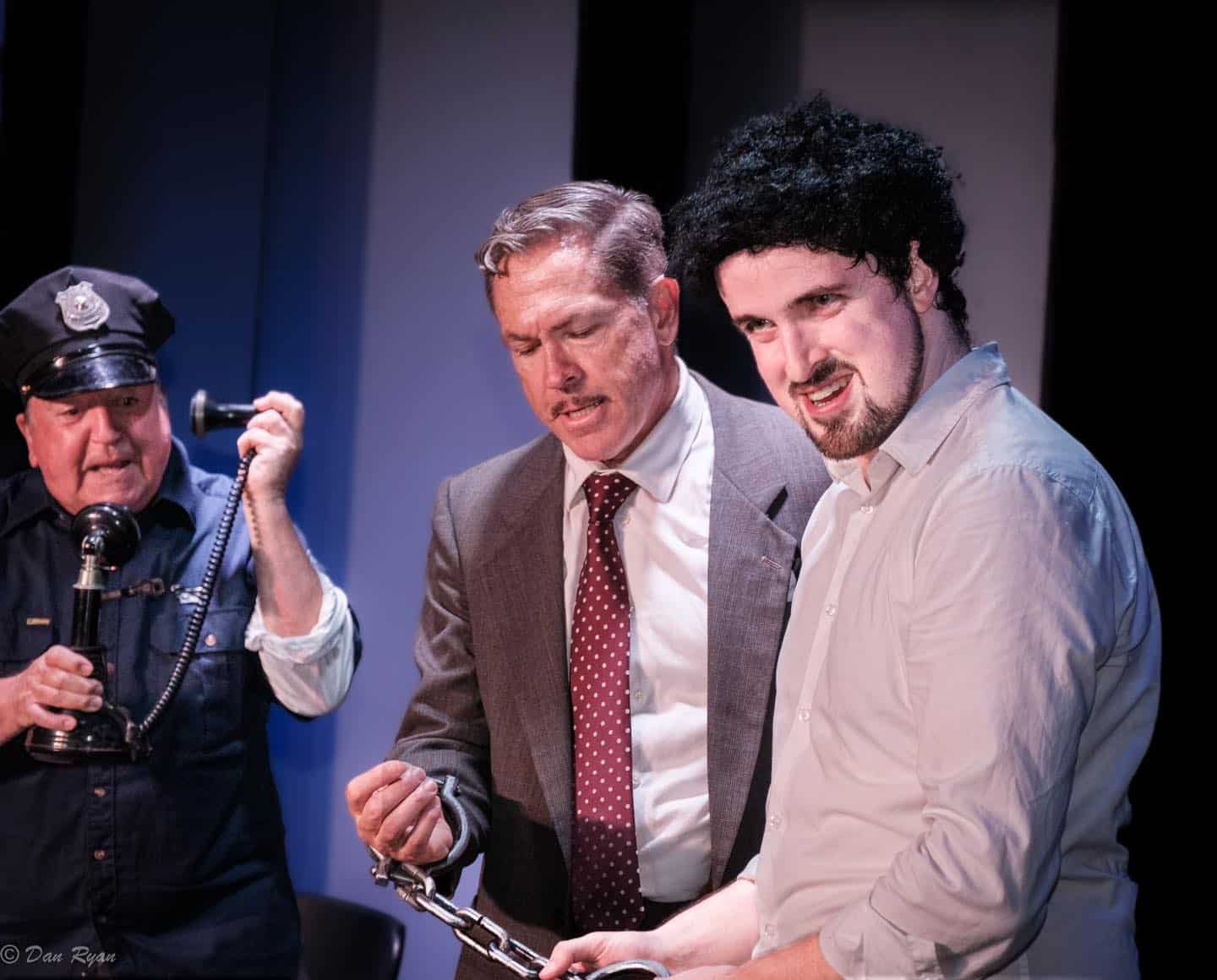The lights go up to illuminate a minimalistic stage with clouds floating on a screen behind, as we are introduced to our cast of characters.
We are in a waiting room of sorts; perhaps it’s purgatory, or it may be a processing room, but as the scene unfolds, we eventually learn it’s a room for those that have failed at committing suicide.
As we meet our nameless characters, from our antagonist, known only as 379, to our young peacemaker 134, businessman 1620, and the only woman 786, through a series of conversations, we slowly learn what has brought each person to this space.
Whether it is a failed life, illness, divorce, sexuality, or just uncertainty, we learn about the insights of each character. Like an overripe onion, layers are slowly peeled away to reveal the deep personal pain and the lessons each character must learn.
Each character must face their demons in the hostile space that is this waiting room, deciding whether they want to live or die. They begin by being in denial of the ending of their lives, as they share their stories we see their humanity evolve, and we begin to see regret, heartbreak and pain in each person. It’s compelling to watch as we learn of the struggles of each individual.
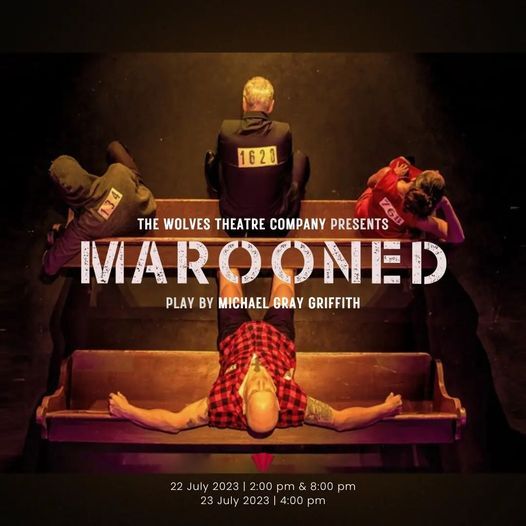
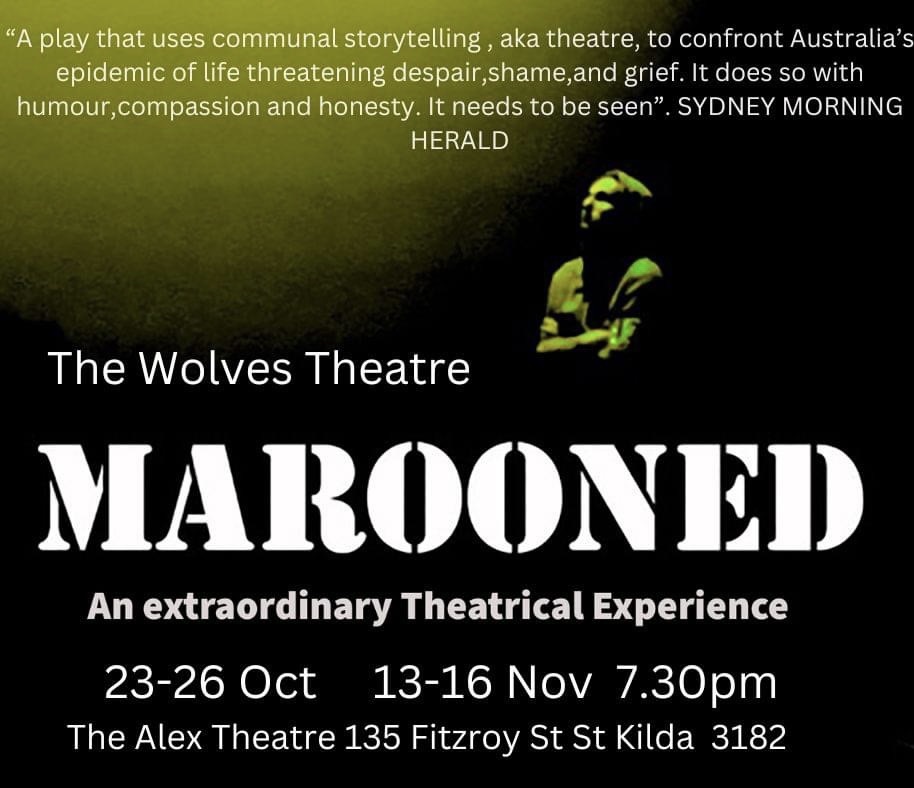
The play delves into some very deep issues of the human psyche and explores them on a level that is thought-provoking and compelling.
As we learn of each character’s complexities it’s hard to decide how to feel about each person and their journey to this space. Each character comes from a diverse background and each has unique reasons for being in the waiting room.
The play is a powerful exploration of a serious topic and it is unafraid to explore such a complex subject. However, it is done in a manner that is provocative and emotional. Each actor brings a rawness to the performance, and all of them are exceptional in their respective roles.
Marooned is a piece of theatre that will leave you feeling a little shocked, rattled and is an exceptional piece of work that is an absolute must see for all lovers of the arts.
To book tickets to Marooned, please visit https://alextheatre.au/marooned/
